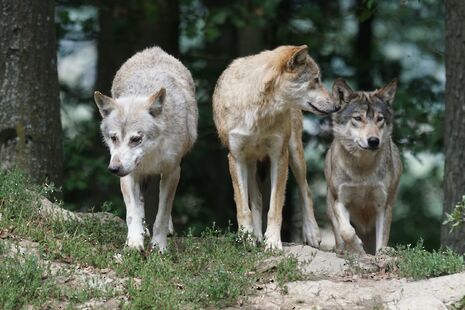Rewilding: bringing nature back to nature?
Joseph Krol investigates the controversy of rewilding, a novel method of land use

“One impulse from a vernal wood / May teach you more of man, / Of moral evil and of good / Than all the sages can.” The world may have changed somewhat since Wordsworth wrote The Tables Turned, but the sentiment his poetry so often encapsulates – that of the serene benedictions of the natural world – is now stronger than ever. The spirit of environmentalism has never been so keenly felt; yet, as a society we so often continue to inflict senseless damage on our surroundings. From this sharpening contrast has emerged an increasingly popular vision for man’s relationship with the world: that of rewilding.
Rewilding, at its core, is a reversion to nature; it involves taking actions as to render natural processes effective once more. Specific strategies include the rebuilding of connections between areas now carved in two by our great thoroughfares, as well as the reintroduction of apex predators whose position had, up to now, been left untenable as a result of human action.
“The problems posed by rewilding are too often reduced to the admittedly vivid image of rabid wolves marauding the backstreets of Watford”
Its proponents note the many benefits of the scheme; rewilding, they argue, would make ecosystems much more sustainable, by increasing biodiversity and enabling them to respond more effectively to changing conditions, free from the artificiality of human impositions. The Rewilding Britain website also notes the important roles that many once-common organisms play in our ecosystems; for instance, natural woodlands with a diverse range of plant life have been shown to absorb considerably more carbon dioxide than industrial-scale monoculture. However, other stakeholders have quite different views.
The problems posed by rewilding are too often reduced to the admittedly vivid image of rabid wolves marauding the backstreets of Watford. There are, however, very genuine concerns over the precise method by which it is enacted. Unchecked introduction of apex predators into our countryside would be a real threat to the viability of livestock farming, and the National Farmers Union has understandably been very frosty to the idea. It must be acknowledged that the environment has changed substantially in the centuries since the last British wolf was killed, and we cannot be sure – or, really, have a remotely clear idea – what the long-term impacts on our modern ecosystems will be.
The interplay between humans and our environment is undoubtedly immensely fragile. Some, however, question the very dichotomy implicit in such a statement. In his classic 1975 work Animal Liberation, the Australian philosopher Peter Singer introduced the concept of ‘speciesism’; although building on the work of Jeremy Bentham and Richard Ryder, it was the first time this take on conservationism had been brought to the forefront of popular discourse. In essence, it argues that the species to which an organism belongs is a completely arbitrary criterion by which to assign rights. According to such an ethical code, rewilding is in many regards morally necessary; we would no more have the right to build a motorway across a field than hedgehogs have the right to cross the meadow in peace. We would have no more right to rid Britain of wolves than wolves would have to rid Britain of us.
Some have rejected these notions, declaring speciesism a baseless fallacy. And it may certainly be said that there is a very visceral, and entirely reasonable, human instinct towards the preservation of our own species. Without an innate bias towards mankind over other animals, we may never have become such a dominant species. But even acting with nought more than human self-interest, there remains a strong case to be made for rewilding, among other tactics.
It would take obliviousness of gargantuan proportions not to see that mankind currently finds itself facing a truly existential question, more so than ever before. Global temperatures are rising at an unprecedented scale, as are sea levels; it is no exaggeration to say that the Earth could quite possibly become irretrievably uninhabitable within a century.
In this situation in which we find ourselves, we must bear in mind that humankind does not exist distinct from nature. Whether in the rainforests of Borneo or the suburbs of Stevenage, we all live forever in this admixture between humanity and the natural world. If we want this delicate harmony to last beyond our lifetimes, we must be prepared, as a species, to learn from nature, through rewilding or otherwise. It may prove difficult, and it will certainly not solve all of our problems. But these lessons are needed more urgently than ever
 News / University Council rescinds University Centre membership20 February 2026
News / University Council rescinds University Centre membership20 February 2026 News / Hundreds of Cambridge academics demand vote on fate of vet course20 February 2026
News / Hundreds of Cambridge academics demand vote on fate of vet course20 February 2026 News / Judge Business School advisor resigns over Epstein and Andrew links18 February 2026
News / Judge Business School advisor resigns over Epstein and Andrew links18 February 2026 News / Caius students fail to pass Pride flag proposal20 February 2026
News / Caius students fail to pass Pride flag proposal20 February 2026 News / Union cancels event with Sri Lankan politician after Tamil societies express ‘profound outrage’20 February 2026
News / Union cancels event with Sri Lankan politician after Tamil societies express ‘profound outrage’20 February 2026










